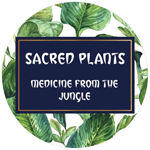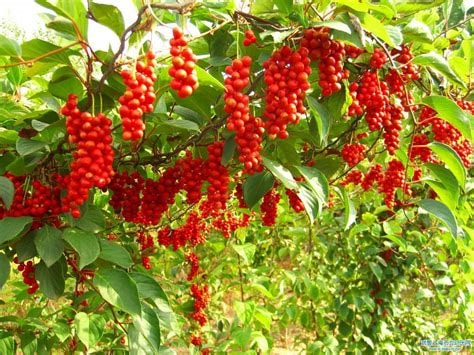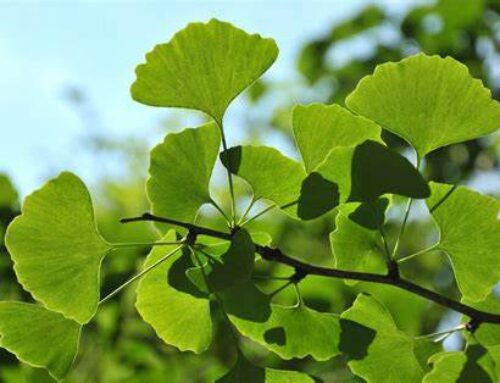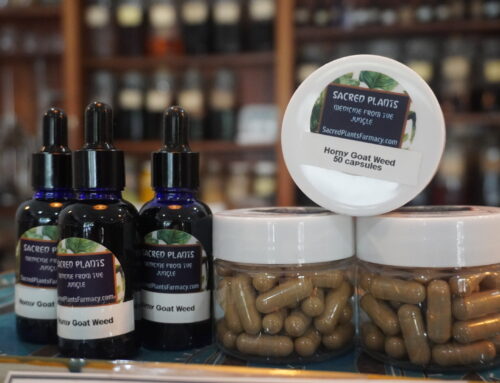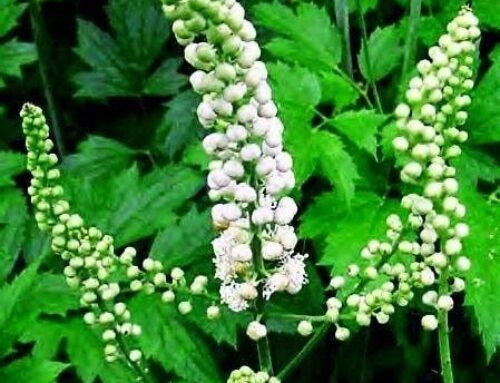- Adaptogen
- Relieves stress
- Increases energy levels
- Increases physical performance
- builds immune system
- Alleviates oxidative stress on the liver and improves liver function
- Contains flavonoids lice quercetin and hesperidin that function as antioxidants, ridding the body of free radicals that cause long term cell damage.
- Stimulates the adrenal gland and the production of hormones like epinephrine
- Improves heart rate, muscle strength, blood pressure and sugar metabolism
- Increases mental alertness, libido and feeling of well being
- Reduces appetite
Dose: 15 to 20 drops, 1 to 2 times per day with food.
Do not exceed dose. Can cause gastric upset. May not be appropriate for people with GERD, ulcers or high stomach acid.
Organic Schisandra berry tincture is recommended to cycle on for 3 months, then cycle off 3-7 days to reset in your system and not build up a tolerance.
Schisandra (Schisandra chinensis) holds a special place in history since it was used along with other ancient herbs, like ginseng, goji berry and reishi, by Taoist masters, Chinese emperors and elitists. In Russia, schisandra first gained recognition as an “adaptogen agent” in the 1960s when it was published in the official medicine of the USSR handbook, following the discovery that it helps fight adrenal fatigue, heart problems and the negative effects of stress.
Interestingly, schisandra gets its name due to the berries having quite a complex taste, since they hold five distinct flavor properties: bitter, sweet, sour, salty and hot. This is why schisdanra is sometimes called “the five-flavored berry.”
Beyond just how it tastes, its flavor components are important for understanding the way it works. The secret to schisandra’s power is that it’s said to have properties pertaining to all five elements in Traditional Chinese Medicine (TCM), which means it works in multiple “meridians” within the body to restore internal balance and health.
Because it impacts nearly every organ system within the human body (what TCM refers to as the 12 “meridians”), it has dozens of uses and benefits. TCM views schisandra as an herb that helps balance all three “treasures” within the body: jing, shen and chi.
It’s most well-known for boosting liver function and helping with adrenal functions, but other benefits also include:
- acting like a powerful brain tonic (improving focus, concentration, memory and mental energy)
- improving digestion
- supporting hormonal balance
- nourishing the skin
Studies have found that, in healthy subjects, schisandra generates alterations in the basal levels of nitric oxide and cortisol present in blood and saliva. In animal studies, it’s also been shown to help modify the response to stress by suppressing the increase of phosphorylated stress-activated protein kinase, which raises inflammation.
Schisandra has historically been taken as a tonic tea, but today you can find it in supplement form, which makes it easier than ever to use. Unlike many other herbs or supplements, it can be taken long term without any negative side effects or risks. In fact, it’s believed to work better and better the longer you take it, just like many other natural adaptogens.
Some herbs that are beneficial for improving liver function can start to become problematic if used for too long, but schisandra is safe for day-to-day use even in people with sensitive digestive systems and low tolerance to supplements.
Health Benefits
1. Helps Lower Inflammation
Thanks to its high concentration of antioxidant compounds, schisandra helps fight free radical damage and lowers inflammatory responses — which are at the root of modern diseases, like cancer, diabetes and heart disease. Free radicals threaten our health because they turn on and off certain genes, cause cellular and tissue damage, and speed up the aging process.
Due to its ability to positively affect the immune system and fight inflammation, schisandra seems to help stall the development of atherosclerosis (hardening of the arteries), balance blood sugar, prevent diabetes and bring the body into an optimal acid-base balance.
When it comes to cancer prevention, active lignans have been isolated from schisandra (especially one called schisandrin A) that have chemo-protective abilities. Studies that have investigated the effects of schisandra on organs, tissues, cells and enzymes have revealed it helps control the release of leukocytes, which promote inflammation, and improve the ability to repair tissue. It also positively impacts platelet-activating factors, metabolism, oxygen consumption, bone formation and the tolerance of toxin exposure.
According to Memorial Sloan Kettering Cancer Center, studies using animals suggest that schisandra increases hepatic glutathione levels and glutathione reductase activities, downregulates inflammatory cytokines, activates the eNOS pathway, exhibits apoptosis (death of harmful cells), and enhances cell proliferation.
2. Aids Adrenal Function, Helping Deal with Stress
Known as an adaptogenic agent, schisandra helps balance hormones naturally and therefore improves our ability to deal with stressors, both physical and psychological.
Adaptogenic herbs and superfoods have been used for thousands of years to naturally raise the body’s resistance to environmental stress, anxiety, toxin exposure, emotional trauma, mental fatigue and mental illnesses. Because schisandra helps nurture the adrenal glands and turns down an overproduction of “stress hormones” like cortisol, it’s linked with better mental capabilities, physical endurance and metabolic health.
In 2007, the Swedish Herbal Institute Research and Development department tested the effects of adaptogen herbs, including rhodiola, ginseng and schisandra, on blood levels of stress-activated protein kinase (SAPK/JNK), nitric oxide (NO), cortisol, testosterone, prostaglandin, leukotriene and thromboxane in rats.
Researchers determined that over a seven-day period, when rats were given frequent supplementation of adaptogens/stress-protective herbs, they experienced near-steady levels of NO and cortisol despite increased amounts of stress.
The findings suggest that inhibitory effects of these adaptogens make them natural antidepressants that have positive effects on hormones and brain functions even when under stress and tiring conditions. Don’t forget there’s also a link between lower amounts of stress and better immune function: The more stress we’re under, the less capable we are of defending ourselves from disease.
3. Supports Liver Function and Digestive Health
Much of the anecdotal research on schisandra has focused on liver function, especially its effect on the production of various liver detoxifying enzymes. Its immune-boosting abilities are far-reaching because schisandra helps increase enzyme production, boost antioxidant activity, and improve circulation, digestion and the ability to remove waste from the body.
Because liver health is tied to stronger immunity, schisandra has been found to be protective against infections, indigestion and various gastrointestinal disorders.
Dozens of studies done over the past 50 years demonstrate the efficiency of schisandra in cleansing the liver, treating pneumonia, preventing developmental problems in pregnant women, and reducing allergic reactions, acute gastrointestinal diseases, gastric hyper- and hypo-secretion, chronic gastritis, and stomach ulcers. Some small studies also show it’s helpful for treating chronic hepatitis, especially when used with other treatments.
A randomized, parallel, placebo-controlled study done by the Taichung Hospital Department of Health in China showed that patients experienced improvements in liver function and relief from fatty liver disease when using a mixture of schisandra fruit extract and sesamin. Forty subjects were divided into a test group (taking four tablets daily) and a placebo group. Effects of total bilirubin, direct bilirubin, free radical levels, total antioxidant status, glutathione peroxidase, glutathione reductase and the lag time for low-density lipoprotein oxidation were all observed.
Compared to the control group, schisandra greatly increased the antioxidant capacity and decreased the values of thiobarbituric acid reactive substances, total free radicals and superoxide anion radicals in the blood. An increase in glutathione peroxidase and reductase also occurred in the group taking schisandra, while a longer time period was observed for low-density lipoprotein oxidation and inflammatory markers.
A 2010 study published in the International Journal of Clinical Pharmacology and Therapeutics found that schisandra can even benefit patients following a liver transplant, since it increases production of a compound called Tcrolimus (Tac), which prevents the body’s rejection of a new liver following liver transplantation.
Blood concentrations of Tac significantly increased in liver transplant patients after receiving schisandra sphenanthera extract (SchE). The average increase in the mean concentration of Tac in the blood was 339 percent for the group receiving higher doses of SchE and 262 percent for the group receiving lower a dose. Tac-associated side effects, such as diarrhea and indigestion, also decreased significantly in all patients as liver function improved.
4. Protects the Skin
Schisandra is a natural beauty tonic that’s capable of protecting the skin from wind, sun exposure, allergic reactions, dermatitis, environmental stress and toxin accumulation. Schisandra chinensis has been widely used to treat skin diseases due to its anti-inflammatory effects.
While more formal research on the effects on schisandra on skin health are needed, one 2015 study using rats observed that schisandra extract inhibited ear swelling by lowering skin dermatitis, immune cell filtration and cytokine production, which are all markers of inflammatory skin disorders in humans.
5. Can Improve Mental Performance
One of the oldest uses for schisandra is promoting mental clarity and raising energy levels. Centuries ago in Russia, it was used by the Nanai people to promote stamina for hunters going on long voyages without much rest or nourishment.
Practitioners of TCM have used schisandra to naturally improve mental capabilities and promote sharper concentration, increased motivation and better memory.
One of the great things about schisandra is that it doesn’t increase energy in similar ways to caffeine, by affecting the release of various stress hormones and altering blood sugar. As you probably know, caffeine use — especially caffeine overdose — can cause side effects like nervousness, restlessness and heartbeat irregularities, but schisandra actually does the opposite. It essentially makes you feel calmer while also fighting off fatigue.
Studies also show a link between schisandra use and protection against neurological and psychiatric disorders, including:
- neurosis
- depression
- schizophrenia
- anxiety
- alcoholism
- even Alzheimer’s
6. Helps with Healthy Sexual Function
Research shows that schisandra is beneficial for fertility and hormonal health, helping promote a strong libido, preventing sexual dysfunction like impotence and positively affecting the reproductive organs, including the uterus. (9)
Because it positively impacts hormone production, including estrogen, it’s capable of helping with bone healing and forming bone mineral density. This is useful for preventing diseases like osteoporosis, which is common among older women as they experience changes in hormonal levels.
How It Works
Historically in TCM, schisandra was used to promote a balance between yin and yang. It’s said to help “calm the heart and quiet the spirit” by positively affecting the brain, kidneys, liver and lungs.
While it’s been used for generations safely and effectively, very few human trials have been performed using schisandra. Those that have shown its powerful at improving liver function, lowering fatty liver disease and fighting chronic hepatitis C virus.
Other studies show that it’s a natural stress reliever, improves performance of cognitive tasks and reduces digestive symptoms associated with liver transplants.
The most important active constituents of schisandra include:
- schizandrin
- deoxyschizandrin
- schisanheno
- schizandrol
- sesquicarene
- citral
- stigmasterol
- antioxidants, including vitamins C and E
Schisandra is a complex herb, and there are multiple mechanisms by which these constituents might act like phytoadaptogens, affecting the central nervous, sympathetic, endocrine, immune, respiratory, cardiovascular and gastrointestinal systems. Research has shown that schisandra helps stall the process of oxidative stress, which contributes to nearly every disease there is and results in the loss of healthy cells, tissues and organs.
It also exhibits strong antioxidant activities that positively affect blood vessels, smooth muscles, the release of fatty acids into the bloodstream (such as arachidonic acid) and the biosynthesis of inflammatory compounds. This results in healthier blood cells, arteries, blood vessels and improved circulation.
This is one reason why schisandra helps increase endurance, accuracy of movement, mental performance, fertility and working capacity even when someone is under stress.
According to a report published in the Journal of Ethnopharmacology, a large number of pharmacological and clinical studies conducted over the past five decades suggest that schisandra increases physical working capacity and has strong stress-protective effects against a broad spectrum of harmful factors. Among its many uses, studies have found it helps prevent inflammation, reverse heavy metal toxification, improve loss of mobility — plus treat heat shock, skin burns, frostbite, hormonal disorders and heart disease.
A 2015 study published by the Department of Korean Medicine at Dongguk University found that schisandra fruit positively modulates gut microbiota in a way that helps prevent various metabolic syndrome risk factors, along with potentially weight gain.
After studying markers related to metabolic diseases in 28 obese women as part of a randomized, double-blind, placebo-controlled study done over 12 weeks, the researchers found that compared to placebo schisandra had a greater impact on lipid metabolism and modulation of gut microbiota that resulted in a decrease in waist circumference, fat mass, fasting blood glucose and triglycerides levels.
Bacteroides and bacteroidetes were two forms of microbiota increased by schisandra that showed significant negative correlations with fat mass. Ruminococcus was another microbiota decreased by schidandra, which resulted in a decrease of high-density lipoprotein cholesterol and fasting blood glucose.
The statements made within this website have not been evaluated by the Food and Drug Administration. These statements and the products of this company are not intended to diagnose, treat, cure or prevent any disease.
